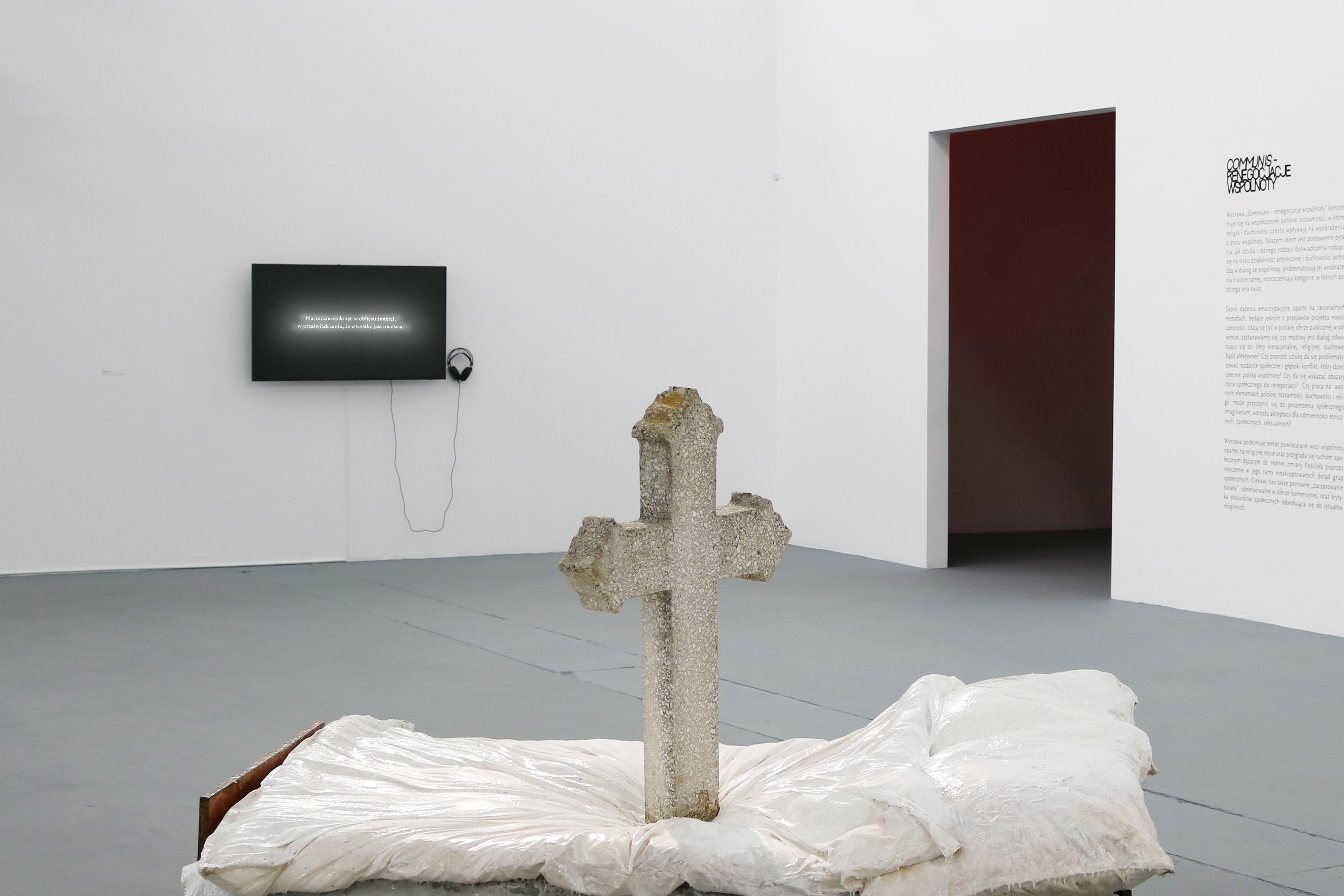Spowiedź (Confession)
performance documentation, 09:52min- acquisition to the Filmoteka of the Museum of Modern Art in Warsaw
2016
Video with english subtitles avialiable on Filmoteka of the Museum of Modern Art in Warsaw
https://archiwum.artmuseum.pl/en/archiwum/archiwum-polskiego-performansu/2918/130100
(EN)
“Confession” is a performance footage that does not feature any filmed images. The soundtrack consists of dialogue, accompanied by the sounds of a holy mass heard in the background. It documents an act of atonement: a real life confession made by the artist—a confidential conversation that has been recorded and presented in public. Inside the confessional Dobrucki talks about his life and doubts using quotes from Ingmar Bergman’s film “The Seventh Seal.”In so doing, the artist evokes fundamental existential issues. Yet the staged situation and the performed role gain authenticity as a dialogue owing to the approach of the priest, who ventures to answer the doubts and wants to share the burden of indecision. It is does not matter if he is aware of his role in the artist’s work.
Dobrucki’s interests focus on the questions raised by the ritual of washing away sins, a procedure that releases the individual from the committed moral wrongs and restores the ties with the religious community. The ritual requires contrition and shame for the committed wrongs. Dobrucki’s artistic activity, which feeds on the sacrament of penance, is an attempt to recreate this rite of passage.
His work can be described as a profanation in its original sense—relocating the sacrament from the sacred sphere to the sphere of use with a view to understanding its mystery and transformative force. How is penance for sins chosen? What is the gravity of this act? What is the power of forgiveness? How can it influence the community? If a performance adopts the form of a confession; Does it wash away the sins?
(PL)
Spowiedź to rejestracja performansu wypełniona jedynie ścieżką dialogu i rozbrzmiewającymi w tle dźwiękami mszy świętej. Jest dokumentacją aktu pokuty, realnej spowiedzi odbytej przez autora, rozmowy poufnej zarejestrowanej i przywoływanej publicznie. W trakcie dialogu w konfesjonale opisuje on swoje życie i rozterki za pomocą słów zaczerpniętych z filmu Siódma pieczęć Ingmara Bergmana, poddając pod dyskusję najpoważniejsze zagadnienia egzystencjalne. Rola odgrywana w inscenizowanej sytuacji przemienia się w prawdziwy dialog dzięki postawie kapłana, który próbuje odpowiedzieć na pojawiające się wątpliwości, przyjmując na siebie ciężar rozterek. Nie jest przy tym istotne, czy rozpoznał się jako odtwórca roli.Zainteresowanie Dobruckiego skupia się wokół kwestii związanych z rytuałem obmycia z grzechów, procedurą, która uwalnia jednostkę z przewin moralnych, przywracając jej związek ze wspólnotą wiary. Rytuał ten wymaga wzbudzenia w spowiadającej się osobie żalu za grzechy, swoistego wstydu za dokonane czynności. Dobrucki stara się odtworzyć taką sytuację przejścia podczas aktu artystycznego, który powstaje w trakcie jednego z sakramentów. Można opisać jego działania, używając pojęcia profanacji w jej pierwotnym znaczeniu – wyjścia z obszaru świętości i powrotu rytuału spowiedzi do sfery użytkowania, co pozwala zgłębić jej tajemnicę i siłę przemiany. Jak wyznacza się pokutę za grzechy, gdzie leży ich ciężar, czym jest władza ich odpuszczania i jaki dzięki niej uzyskuje się wpływ na wspólnotę? Jeżeli performans mógłby przyjąć formę wyznania grzechów i rozmowy, to czy prowadzi do oczyszczenia?

